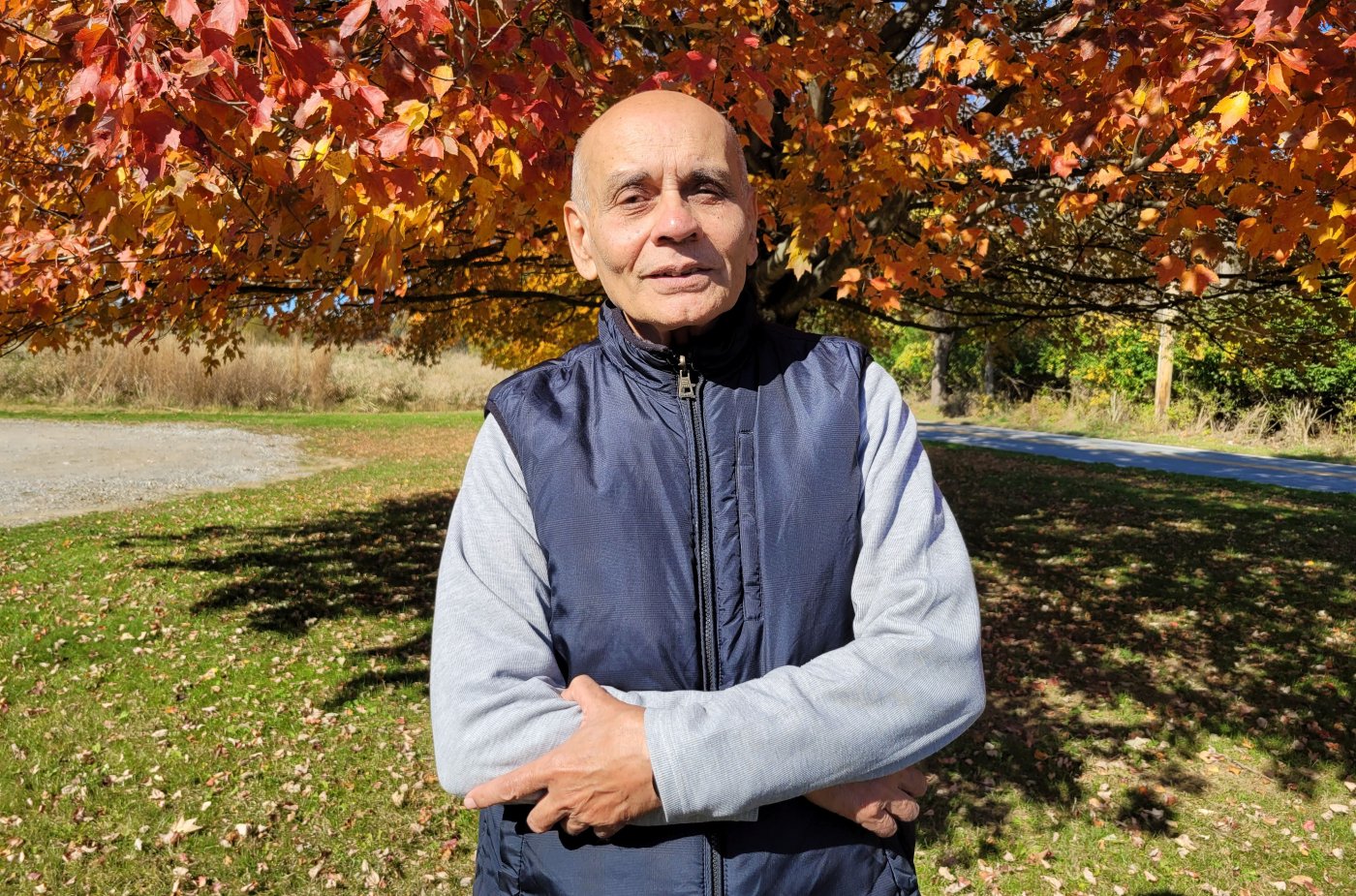Mumbai: In February 2017, 71-year-old Indian navy commodore Lokesh Batra (retired) listened attentively when the then union finance minister Arun Jaitley, in his budget speech, started reading a section on the need for transparency in electoral funding.
His initial delight at Jaitley’s stated desire for a more transparent funding system turned into dismay, when the minister announced that the government would issue electoral bonds, which donors could purchase and donate to political parties of their choice, without needing to reveal their identity.
This anonymity, Batra believed, went against the principle of transparency.
For the next seven years, Batra, who served the Indian Navy in various capacities as a hydrographer and was part of the 1971 war effort, pursued with determination his mission to bring more transparency to these bonds. In the process, his use of the Right to Information Act, 2005, unravelled sensational facts around the bonds—from the Election Commission of India’s (ECI) strident opposition to the bonds, to the fact that the Reserve Bank of India had warned against such a system and its concerns were swiftly dismissed by Jaitley’s ministry.
“When initial documents show you that there is something amiss and it needs more information, you end up filing follow-up RTIs on the same subject,” said Batra in an interview to Article14.
Batra’s efforts became the foundation for critical reporting on the issue and the legal challenge mounted against the electoral bonds by a clutch of petitioners in the Supreme Court. Acting on their petitions, the Supreme Court on 15 February 2024 validated Batra’s concerns, struck down these bonds as being “unconstitutional”, violative of the right to information and Article 19 (1) (a) and halted the sale of these bonds immediately.
Batra, currently in the US on a personal visit, filed more than 100 right-to-information (RTI) requests to uncover government subterfuge around the issue. Batra, while not a petitioner in the cases filed before the SC on the issue, said he worked closely with the Association of Democratic Reforms (ADR), the main petitioner in the case. Batra said he shared all the documents he uncovered through his RTI queries with the ADR, and they later went on to become part of the petition against electoral bonds.
“One major challenge I faced was, government websites have been geo-fenced, which means that me, sitting in the United States, cannot access government websites like the ECI or even my own pension website,” said Batra, who got around that problem by asking friends in India to help him out.
Batra, a veteran transparency campaigner, has been also involved in filing RTIs on issues like the opaqueness of the PM-CARES Fund, as well as expenditure around Prime Minister Narendra Modi’s foreign visits. Batra said electoral bonds had created an “unequal playing field”.
Of more than Rs 12,000 crore in donations received through such electoral bonds, the BJP alone, the SC judgement revealed, had received 55%, while its nearest rival, the Congress party, got less than 10%.
“This is like pitting Dara Singh (the famed wrestler) against a school kid,” said Batra.
How and when did you first decide that you want to focus on electoral bonds and create more transparency on the issue?
The idea of transparency in governance is something I have been working on for many years now. Transparency is what makes the nation strong, and transparency is a tool for participation in governance. I have always believed the government has zero money of its own, they only have taxpayers money. It is every citizen’s responsibility to see how your money is being used.
In 2017, I was watching Arun Jaitley deliver the budget speech. When he started talking about corruption in the political system, my hopes soared. We all knew this existed, so it was heartening to hear him speak about it. But two paras into the speech, he announced the new electoral bonds system, where they would keep the donor’s identity secret. This kind of opacity goes against the spirit of transparency. When I started digging deeper, I uncovered a letter written by the Election Commission of India in 2017 which called it “a retrograde step”.
For me, the biggest red flags were when I realised that 3 acts were amended—the Income Tax Act, the Representation of the People Act, 1951, and the Companies Act, 2013—all to accommodate just one change, which was the electoral bonds (EBs) system.
I started asking for more details around the EBs and realised that government departments were saying they agreed with the ECI’s concerns. The tipping point for me, though, was when a union minister [of state for finance P Radhakrishnan] lied in Parliament, denying the existence of such concerns by ECI.
What, in your views, were the biggest drawbacks of the electoral bonds?
From day one, various institutions—from the RBI to the ECI—had flagged very serious concerns with EBs. There were warnings that the scheme would lead to money laundering, lead to shell companies being created and open up possibilities of quid pro quo between donors and parties. I am not an expert, but when institutions voice these criticisms at the starting point itself and when the government starts lying about such concerns, you should know that there is some shady business going on. I am a voter and I have a right to know. If candidates have to submit affidavits of their assets, why shouldn’t parties tell us where they were getting their money from? Transparency builds the nation. If things are not transparent, then why are they being done, is the question that rose.
What impact does such opaque funding have on our democracy?
For any election to be truly free and fair, there has to be a level playing field between the opposition and the ruling party. This means that people can donate to whichever party they like, but it should be declared. [With electoral bonds] you as a voter don’t know where the money is coming from; even foreign money can be coming in. Any opaque money coming in, in large amounts, can influence the country’s policy. The question is, who are the buyers? Such opaque money corrupts those in power and when power gets corrupted, there is no saying where things will end. There can be a quid pro quo—most donations were in denominations of a crore. Anybody who is donating in crores, has to be a super-rich corporate. The question is, why would someone like that donate without a quid pro quo? If a particular party in power gets the money, then they could even favour this donor.
The 2019 elections were the most expensive election ever—parties reportedly spent over Rs 60,000 crores in the campaigning. If that is the money that is needed to win elections, how can a common person participate in the elections? How can a common person even dream of becoming an MP or an MLA?

Your RTI queries highlighted an area which receives scant media coverage—which is the inner workings of the Modi government. You obtained government files, with candid file notings, remarks and correspondence between the ministry of finance and the Reserve Bank of India around the issue of the EBs. What did this correspondence indicate to you?
From the first letter of 26 May 2017 that the ECI wrote, it was clear that there were problems that needed to be ironed out around EBs, before they were rolled out. Just days before it was announced, the government realised that they had not consulted the RBI on the move. The ministry of finance writes to the RBI, which, within a day, responds with a critical opinion (the RBI said amending the RBI act for facilitating EBs would “seriously undermine” a core principle of central banking legislation and “set a bad precedent” while failing to achieve transparency”). Instead of taking this seriously, the ministry responds and says the RBI has “not understood” the proposal, and they go ahead with the bonds. What does it tell you, if a secretary-level officer dismisses the concerns of the country’s central bank? A former secretary recently revealed how the Prime Minister called then-RBI governor Urijit Patel a ‘snake’, and it is almost like saying, if you don’t agree with me, you are a snake.
Former finance minister Arun Jaitley had argued that electoral bonds were a “substantial improvement in transparency” over the then system of donations which he called a system of “no transparency”. Since the judgement, the BJP has also defended the scheme and said it was brought in to further transparency. Your comments?
During the hearing, too, the solicitor general had said the same thing. I concede that the previous system (of electoral funding) was also not perfect, it required improvement. But the point was, at least in the previous system, anyone who donated above Rs 20,000 had to reveal their identities. Now you are getting these huge sums of money, but the donor’s identity isn’t known at all.
In addition, nowhere in the EB scheme does it mention that the money collected through EBs can be used only for elections. How this money gets distributed is an aspect we don’t know. You can build a party office or you can use it to advertise and spend money on the media, hypothetically. So, you can create an unequal field through unequal spending between parties.
The previous system needed a definite change but the change has to be more transparent and should not impinge on the right to information.
The Modi government has argued before the Supreme Court that citizens “do not have a general right to know regarding the funding of political parties”. How do you respond to this?
The attorney general (R Venkatramani) said this on the first day, [to which] I said it is my fundamental right to know this as a citizen. I have a fundamental right to know everything about my candidate, including where their funding comes from. How can you say I don’t have the right? If I don’t have the right to know, then you should also take away the provision for the candidates to make disclosures, maybe?
How do you think the government will respond to this judgement? When it came to the Supreme Court judgement on ECI appointments directing that a panel including the Chief Justice of India advise the President on selecting the EC members, the Centre brought in a bill to nullify this judgement and keep the CJI out of the selection process. Is the government likely to do something similar in this case, too?
Let’s wait and watch. Anything can happen, they can even issue an ordinance. But such a step will give them a bad name, because the entire set of amendments has been called unconstitutional.
What were the challenges you faced when you were trying to create more transparency around electoral bonds? How many RTIs did you file, in trying to uncover the documents around these bonds?
I don’t even recollect the number of RTIs, but it will be many, many, maybe over 100 or so. When initial documents show you that there is something amiss and it needs more information, you end up filing follow-up RTIs on the same subject.
One major challenge I faced was, government websites have been geo-fenced, which means that me, sitting in the United States, cannot access government websites like the ECI or even my own pension website.
Somewhere in the journey, I woke up one day to a WhatsApp message on my phone—it said anyone who wrote against Modi, the BJP or the RSS, would meet the same fate as Gauri Lankesh. I refuse to be fazed by such threats.
Get exclusive access to new databases, expert analyses, weekly newsletters, book excerpts and new ideas on democracy, law and society in India. Subscribe to Article 14.

